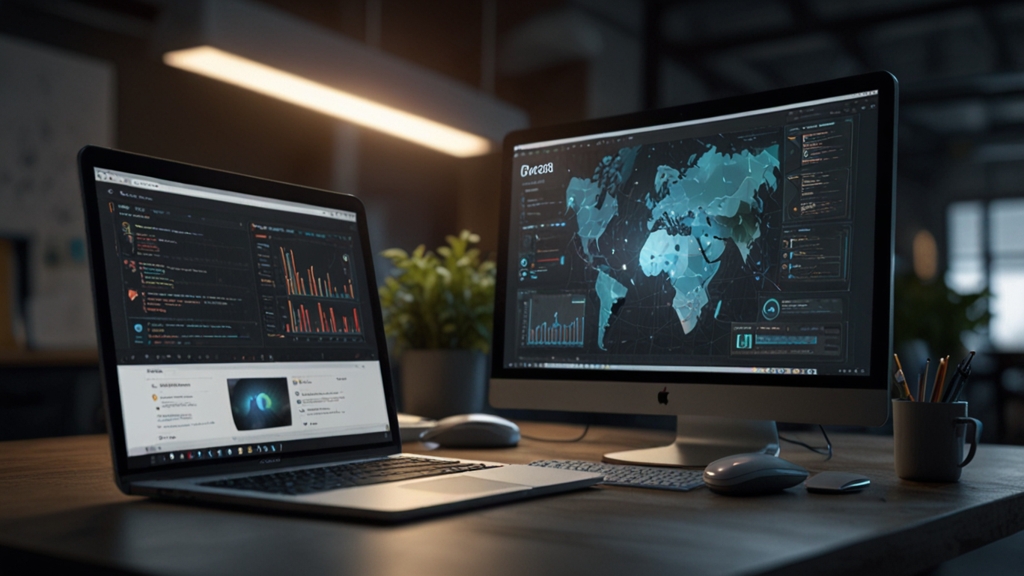The Hidden Cost of Distractions: What They're Really Stealing from You
In today's fast-paced digital world, distractions lurk at every corner. Social media notifications, incessant emails, or the quick lure of online shopping can interrupt our focus and derail our productivity. While these distractions may seem harmless or even necessary for small breaks, they carry hidden costs that are often underestimated or overlooked. Understanding these costs can help us regain control over our time and mental well-being.
The Cost of Time
Time is arguably our most valuable resource, and distractions are notorious for consuming it without our notice. Every time we shift our attention away from a task to check a notification or a message, we lose precious minutes. According to research, it can take an average of 23 minutes and 15 seconds to refocus on a task after an interruption.
"Distractions aren't just a minor inconvenience; they can significantly disrupt our workflow and reduce overall productivity." - Dr. Gloria Mark, Professor of Informatics
When these interruptions are multiplied throughout the day, they culminate in significant losses of productive time. Imagine if you could reclaim those lost minutes and hours. What could you accomplish? What projects might advance? The opportunity cost of time lost to distractions is immeasurable and can have long-term implications on our professional and personal lives.
The Cost of Mental Energy
Our brains have a limited capacity for intense concentration and focus. Each distraction, no matter how small, demands cognitive resources. Constant switching between tasks – known as context switching – can lead to mental fatigue. Over time, this can erode our ability to concentrate even when we need to.
The depletion of mental energy impacts not only our productivity but also our creativity and problem-solving abilities. Quality work requires sustained and focused thinking, which distractions undermine. By guarding our attention, we protect our cognitive resources, allowing for deeper and more meaningful engagement with our tasks.
The Cost of Stress and Anxiety
Distractions contribute to increased levels of stress and anxiety. When we are constantly pulled in different directions, our ability to build a coherent workflow is disrupted. The incomplete tasks and unfulfilled duties can lead to a sense of overwhelm. The perpetual cycle of starting and stopping can make us feel like we are chasing our tails, leading to frustration and decreased job satisfaction.
"The cumulative effect of small distractions can lead to increased stress and a feeling of perpetual busyness without accomplishment." - Dr. Teresa Amabile, Business Administration Professor
Chronic stress linked to frequent distractions can have serious repercussions on our mental and physical well-being. It is essential to recognize and mitigate these distractions to maintain a healthy, balanced lifestyle.
The Cost of Relationships
It's not just our work that suffers from distractions; our personal relationships can be affected as well. When we are constantly glued to our devices, it can take away from the quality time we spend with family and friends. Genuine connections require presence and attention, which are compromised when distractions get in the way.
Being mindful of how we use our time ensures that we are fully engaged in our interactions, fostering stronger and more meaningful relationships. In the end, relationships are built on shared experiences and attentive presence, both of which are diminished when distractions pervade our lives.
Reclaiming Focus
The first step to reclaiming focus is awareness. Recognizing the true cost of distractions prompts us to take action. Here are a few strategies to help regain control:
- Set boundaries: Allocate specific times for checking emails and social media and stick to them.
- Create a dedicated workspace: Design a space that is conducive to focused work, free from unnecessary interruptions.
- Practice mindfulness: Engage in mindfulness practices to improve your ability to concentrate and be present.
- Use productivity tools: Tools like noise-canceling headphones, focus apps, and task management systems can help keep distractions at bay.
- Take regular breaks: Purposeful breaks can rejuvenate your mind and prevent burnout. Make sure these breaks are intentional and not just a drift into distractions.
By implementing these strategies, you can significantly reduce the impact of distractions and reclaim control over your time, energy, and mental well-being. The hidden costs of distractions are too great to ignore, but with conscious effort, we can mitigate their effects and lead more focused, fulfilling lives.





